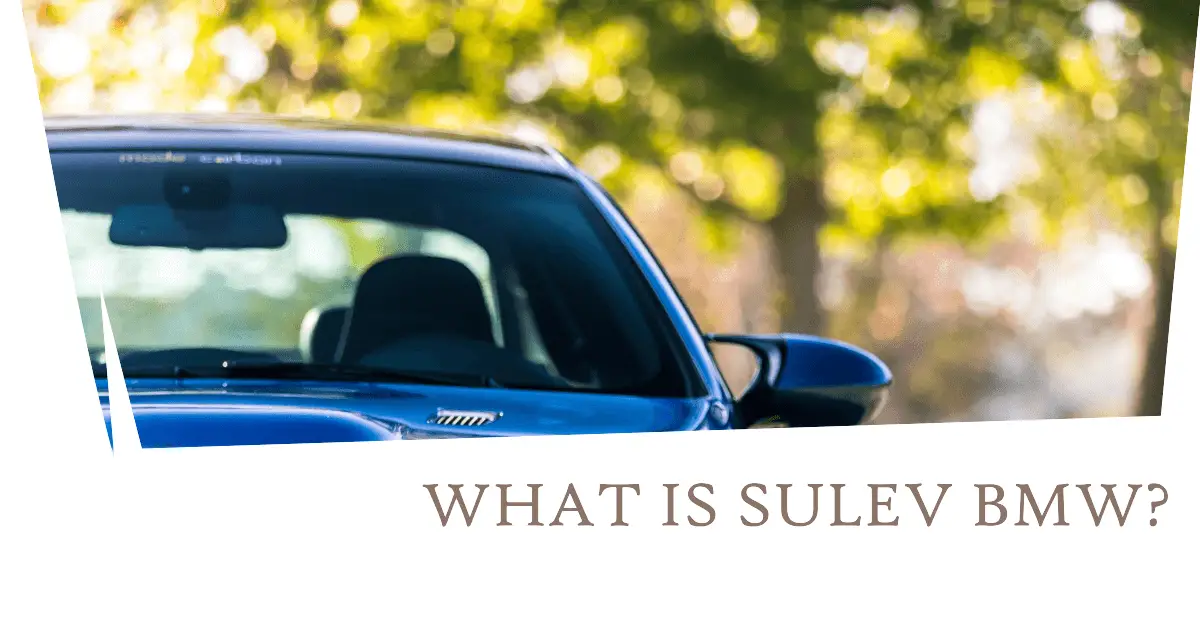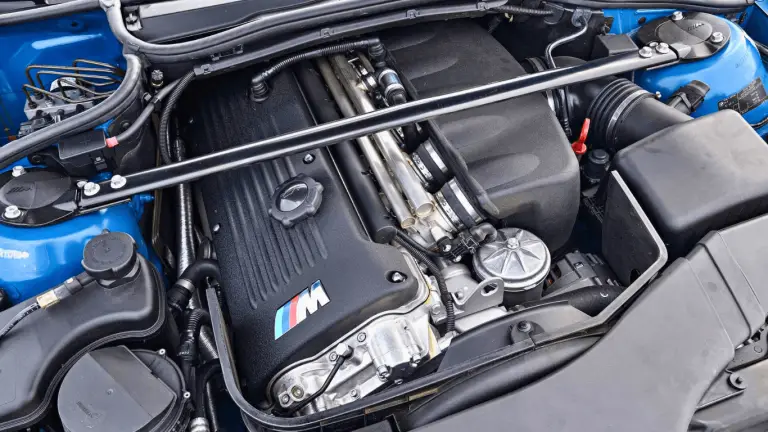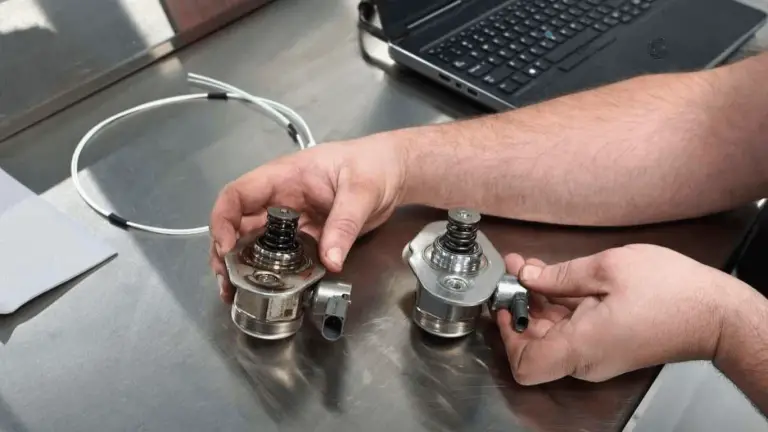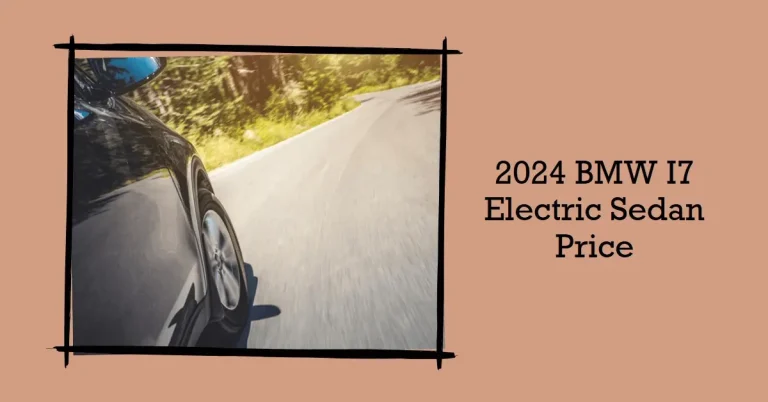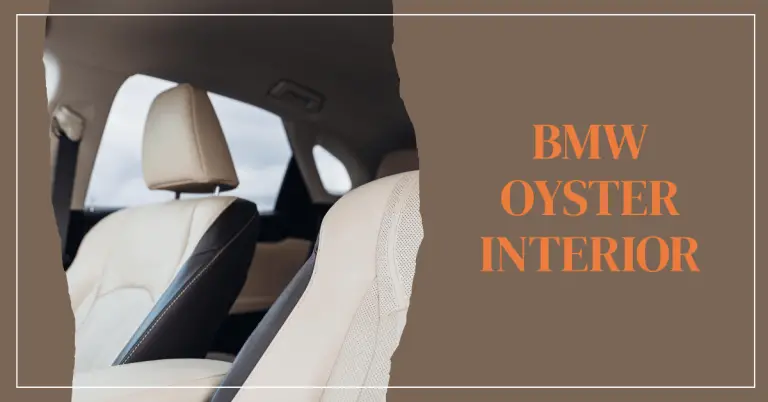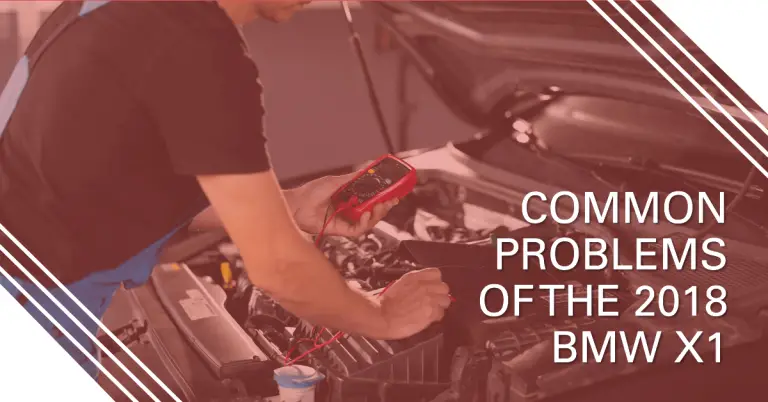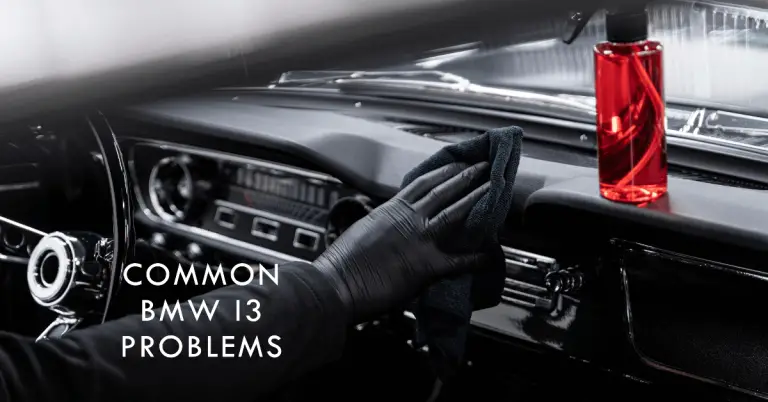What is BMW SULEV? Guide to BMW’s Super Ultra Low Emission Vehicles
With climate change and air pollution being major concerns, many consumers want to reduce their carbon footprint by driving more eco-friendly vehicles. If you’ve looked at BMW models, you may have seen the acronym “SULEV” and wondered – what does SULEV stand for and what makes these BMW cars cleaner?
SULEV means “Super Ultra Low Emission Vehicle.” It is a certification for vehicles that produce significantly lower emissions than average new cars. BMW offers a number of SULEV certified models across its lineup, from the practical 3 Series sedan to the luxurious 7 Series.
In this comprehensive guide, we’ll cover everything you need to know about BMW SULEV vehicles:
- What SULEV means and how it differs from other emissions standards
- Which specific BMW models are available with SULEV engines
- The advanced technology used by BMW to lower emissions
- Benefits of choosing an SULEV model over a standard BMW
- Whether SULEV models cost more
- How to find and purchase a BMW SULEV
Let’s start by understanding what the SULEV certification entails and how it leads to cleaner BMW vehicles.
What Does SULEV Stand For?
SULEV stands for Super Ultra Low Emission Vehicle. It is a vehicle emissions rating that is stricter than both ULEV (Ultra Low Emission Vehicle) and PZEV (Partial Zero Emission Vehicle) standards.
The SULEV certification was created by the California Air Resources Board (CARB), which sets emissions standards that are more rigorous than the federal requirements. CARB introduced increasingly strict emissions tiers – from Transitional Low Emission Vehicles (TLEV) to Super Ultra Low Emission Vehicles – to help reduce pollution from car and truck tailpipe emissions over time.
To qualify for SULEV status, a vehicle must produce 90% lower emissions compared to the average new car or truck. This includes major reductions in emissions of:
- Hydrocarbons (HC)
- Carbon monoxide (CO)
- Nitrogen oxides (NOx)
Hydrocarbon emissions contribute to smog formation, while nitrogen oxides cause smog, acid rain, and other environmental issues. Lower emissions of these harmful pollutants is better for the climate and public health.
How Low are SULEV Emissions?
As the name implies, SULEV vehicles have super ultra low emissions compared to conventional gasoline-powered vehicles. But just how low are they?
Here are the maximum allowable emissions levels for a light-duty passenger vehicle to qualify as SULEV under California standards:
- Nitrogen Oxides (NOx): 0.02 grams per mile
- Non-Methane Organic Gases (NMOG): 0.010 grams per mile
- Carbon Monoxide (CO): 1.0 grams per mile
- Formaldehyde: 0.008 grams per mile
- Particulate Matter (PM): 0.01 grams per mile
To put those numbers into perspective, the EPA’s Tier 2 emissions standard allows up to 0.07 g/mi of NOx and 0.09 g/mi of NMOG – so SULEV vehicles emit 65-90% less of these smog-forming pollutants.
SULEV models also have near-zero fuel vapor emissions from the evaporation of unburned fuel. This is accomplished using advanced carbon canisters that capture vapor emissions before they escape to the atmosphere.
By meeting California’s super-strict tailpipe and evaporation emissions limits, SULEV vehicles provide major environmental benefits and cleaner air – especially in urban areas.
Which BMW Models are SULEV Certified?
Many recent model year BMW vehicles – from the practical 3 Series to the luxurious 7 Series sedan – are available with SULEV certified engines.
Here are some of the BMW models that are sold in SULEV versions:
- BMW 3 Series: 316i, 320i, 328i, 330i, 330e
- BMW 5 Series: 530i, 530e, 540i
- BMW 7 Series: 740i, 740e, 740Le
- BMW X3: xDrive30i
- BMW X5: xDrive40i
- BMW i3
- BMW i8
The list above covers some of the main BMW SULEV models, but there are others as well. In general, many 3 Series, 5 Series, and 7 Series models along with BMW SUVs like the X3 and X5 are available with SULEV certified engines.
BMW hybrid and electric vehicles like the i3, i8, 330e and 530e also qualify for SULEV status due to their low emissions.
The best way to confirm whether a specific BMW model and configuration is SULEV certified is to check the official specifications during the custom order process or on the window sticker for inventory vehicles. The SULEV status should be clearly displayed.
What Makes SULEV Models Different?
BMW uses advanced engine and emissions control technology to lower tailpipe pollution to ultra low levels and meet SULEV standards. Here are some of the differences:
- Precision Fuel Injection – SULEV models use high pressure fuel injection systems to precisely control the fuel mixture. This improves combustion efficiency and reduces emissions.
- Enhanced Catalytic Converter – The catalytic converter has been enlarged and optimized with ultra-low precious metal content to slash emissions of hydrocarbons, nitrogen oxides and carbon monoxide.
- Increased Exhaust Gas Recirculation – Cooled exhaust gas recirculation lowers combustion temperatures and NOx emissions.
- Air-fuel sensors – Upgraded oxygen sensors and advanced control electronics fine-tune the air to fuel ratio. This helps maximize power and fuel economy while minimizing emissions.
- Evaporative System – SULEV vehicles use advanced carbon canisters that nearly eliminate fuel vapor emissions from the fuel system.
The combination of enhanced engine management systems, improved combustion efficiency, and an upgraded emissions control system allows BMW’s SULEV models to achieve such ultra low pollution levels.
What are the Benefits of Choosing a BMW SULEV Model?
Beyond their eco-friendly credentials, BMW SULEV vehicles offer a number of benefits:
- Better Fuel Efficiency – The emissions control technologies like precise fuel injection, higher compression ratios and reduced friction in SULEV models also help boost gas mileage. Expect 1-3 mpg better fuel economy from a SULEV version over a similar non-SULEV model.
- Lower Emissions – With 90% lower pollution, SULEV models are much cleaner for the environment, cutting greenhouse gases and air pollution. This is important for buyers wanting to reduce their carbon footprint.
- Emissions Warranty – BMW provides extended emissions warranty coverage for up to 15 years / 150,000 miles on key components like the catalytic converter. This offers added peace of mind and cost savings down the road.
- Carpool Lane Access – SULEV vehicles qualify for California’s White and Green Clean Air Vehicle stickers, allowing solo access to High Occupancy Vehicle (HOV) lanes.
- Financial Incentives – Buyers may qualify for federal income tax credits up to $4,500 for purchasing a SULEV vehicle depending on battery capacity. Some states also offer additional incentives like tax rebates on SULEV models.
For environmentally conscious drivers, the ultra low emissions and fuel efficiency of a BMW SULEV model are major attractions. But even if you aren’t worried about your carbon footprint, the extended warranty coverage, HOV lane access, and potential incentives make SULEV an appealing option.
Do All States Require SULEV Models?
The SULEV emissions certification specifically meets California Air Resource Board (CARB) standards established under California state law. States have the ability to choose to follow either federal or California emission regulations.
Currently, states that have adopted California standards and require SULEV-certified vehicles include:
- California
- Connecticut
- Delaware
- Maine
- Maryland
- Massachusetts
- New Jersey
- New York
- Oregon
- Pennsylvania
- Rhode Island
- Vermont
- Washington
The rest of the US follows the EPA’s federal Tier 2 emissions standards, which are less strict than California rules. This means that BMW sells special SULEV compliant models in CA and the other states following CARB regulations.
In the majority of states outside of the CA-standards area, BMW vehicles meet Tier 2 Bin 5 emissions. So SULEV models are not required nationwide, only in states adhering to California emissions rules.
Do BMW SULEV Models Cost More?
Despite using advanced engine and emissions technology, BMW’s SULEV certified vehicles are typically priced the same as comparable non-SULEV versions of the same model.
For example, you can expect to pay the same Manufacturers Suggested Retail Price (MSRP) for a 330i SULEV as you would for a standard 330i in areas requiring SULEV certification. Any difference in emissions control hardware costs are already factored into the pricing.
That means you can reap the advantages of lower emissions, better fuel economy and HOV lane access without paying a premium for SULEV status from BMW.
And depending on your location, state tax credits and incentives for SULEV vehicles may actually lower the total cost of ownership and offset the higher technology costs embedded in the pricing.
How to Find and Purchase a BMW SULEV?
If you’ve decided on a BMW SULEV model, here are some tips for locating one to purchase:
- Use the BMW online car configurator tool to build and price out the specific SULEV model you want. Double check that the chosen configuration displays the SULEV certification.
- Check BMW dealership inventories in your area for SULEV models already on the lot. Call ahead to verify SULEV status if not clearly marked.
- Consider purchasing a used or certified pre-owned SULEV model to save money. Verify SULEV compliance in the specifications.
- Custom order a new SULEV vehicle from your local BMW dealer. Ask them to source the car from another dealer if needed.
- If buying out of state, ensure the vehicle meets emissions rules for registering in your area. SULEV models can be sold nationwide.
With their potential environmental benefits, incentives and HOV lane access, BMW SULEV models are enticing options – especially for eco-conscious luxury sedan and SUV buyers. By following the tips above, you can locate and purchase the perfect BMW SULEV.
Conclusion
BMW’s Super Ultra Low Emission Vehicle (SULEV) certified models offer drivers a more eco-friendly luxury option without sacrificing world-class performance and cutting edge technology. With ultra low emissions, fuel efficiency gains, extended warranties and even HOV lane access, SULEV brings compelling advantages to BMW’s lineup. For environmentally minded buyers, choosing a 3 Series, 5 Series, 7 Series, or SUV model with BMW’s advanced SULEV powertrain allows you to reduce your footprint while enjoying the Ultimate Driving Machine.

